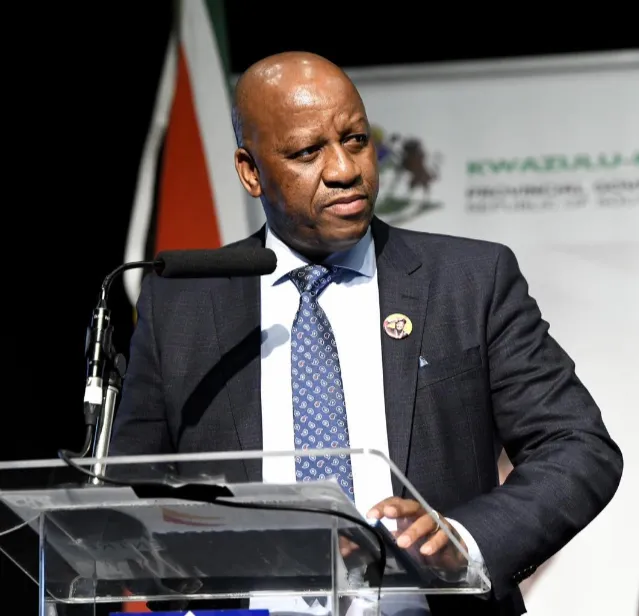
Premier Thamsanqa Ntuli unveils a transformative action plan for KwaZulu-Natal, aiming to create over 12,000 jobs and rejuvenate the province's economy amidst ongoing challenges.
Image: Supplied
KwaZulu-Natal Premier Thamsanqa Ntuli unveiled a comprehensive Provincial Jobs and Economic Growth Action Plan, aimed at rejuvenating the province's economy through robust job creation and renewed investor confidence on Friday.
This announcement follows an extended cabinet meeting on 3 September 2025, and is a direct response to the pressing challenges posed by persistently high unemployment rates in the region.
Provincial spokesperson Bongani Gina said this strategic initiative - focused on immediately addressing unemployment and revitalising the provincial economy - is the result of extensive discussions with members of the executive council (MECs), department heads, and public entities.
"This milestone engagement marked a turning point in KwaZulu-Natal’s collective effort to convert resilience into shared prosperity, in response to Statistics South Africa’s latest data, which continues to show persistently high unemployment levels across the province," he said.
Gina said KZN has endured a tumultuous period characterised by devastating floods, the lingering effects of the Covid-19 pandemic, and ongoing energy insecurities.
This, coupled with logistics bottlenecks, looting, and crime, considerably undermined investor trust, creating a daunting backdrop for communities and enterprises alike, he said.
Despite these challenges, Gina said the province has demonstrated remarkable resilience and innovation.
“That resilience is now being transformed into a comprehensive recovery blueprint under the banner ‘KwaZulu-Natal Reimagined’, an initiative focused on driving inclusive growth, building new value chains, and restoring confidence among investors and citizens alike,” he said.
Key projections from the Action Plan include the creation of 12,734 direct jobs, a projected 43,005 indirect jobs supported, projected economic impact of R56 billion, 11,616 training opportunities and 10,569 internship opportunities.
The Premier emphasised that the success of the Action Plan requires collective commitment.
Ntuli said rebuilding KwaZulu-Natal’s economy is not the responsibility of government alone.
"It demands a united effort from business, civil society, and communities. This Action Plan is not only about creating jobs; it is about restoring dignity, empowering entrepreneurs, and ensuring that prosperity is shared across all districts of our province,” said the Premier.
According to the provincial government, the Action Plan directly addresses structural risks including energy and water constraints, high crime rates, planning delays, global market uncertainties, and climate-related threats.
Gina stated that the plan simultaneously capitalises on emerging opportunities. These include cassava farming, post-Foot and Mouth Disease beef exports, and developments in renewable energy.
The plan also incorporates the expansion of the Richards Bay Industrial Development Zone, new breweries and hotel developments, and various tourism ventures.
Additionally, it focuses on throughput growth at Dube TradePort and regulated revenue streams from gambling and liquor licensing.
“To ensure measurable delivery and accountability, the province will utilise Social Accounting Matrix (SAM) analysis and implement real-time performance dashboards to track the economic and employment impact of public investment,” said Gina.
Quarterly progress reports on the Action Plan's implementation and impact will be published, the premier confirmed. This will enable citizens to monitor progress through transparent, data-driven reporting.
The office of the Premier, in partnership with the Department of Economic Development, Tourism and Environmental Affairs, will establish an Investment Facilitation Unit.
This unit will be responsible for promoting investment, streamlining bureaucratic processes, and guaranteeing that significant infrastructure projects benefit communities, SMMEs, young people, women entrepreneurs, and individuals with disabilities.
karen.singh@inl.co.za